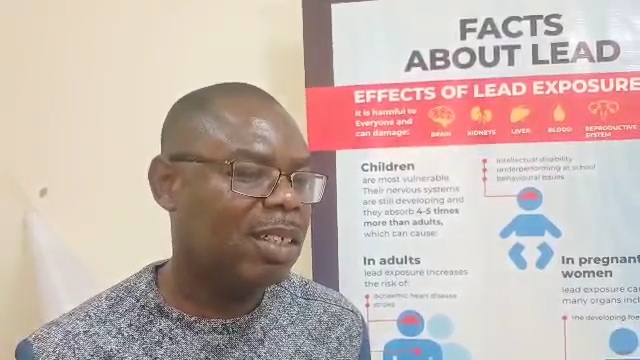
Last weekend, my youngest son, Kwabena, led a group of Ghanaians to climb to the summit of Africa’s highest mountain, Mt Kilimanjaro.
He’s so modest that he won’t be happy to see me write about this feat (which took his group one whole week to accomplish). The amount of physical and psychological pain they underwent to get to the Kilimanjaro summit can only be described by one of the climbers, not by me! So let’s wait for it.
All I can say now is that dedication, determination and DESIRE, can make the impossible feasible. Someone who knows my background well put this question to me (in mocking tones) “But my brother, you at all, when you were growing up at Asiakwa and Kyebi, did you have any mountains to climb? How did mountaineering get into your son’s DNA, eh?”
I replied, “Listen, mate, when I was growing up, I used to go to work on our family farm every Saturday. (Schooling was suspended on Saturday, precisely to enable us to help our families grow food for all of us to eat.)
“Our farms were sometimes far from home, and going to them (carrying things to plant) or returning from them (bearing on our heads, foodstuffs and firewood to use to cook food to eat) was no easy task. Indeed, I believe some foreign organisations have described the system as “child labour” and have made a superficial condemnation of it.
“Now” (I explained) “going to those farms sometimes took us over hills and hillocks, maybe up to 100 feet in height. It wasn’t much (compared to Kilimanjaro’s nearly 19,000 feet!) But since we were carrying loads up and down each way, we were learning how to endure pain. And we were also training our eyes and ears to take full cognisance of our unfriendly environment. If such qualities were transmitted to our offspring through our DNA, would you be surprised?”
My friend laughed again. But I think I have a point. We learn so much from our families without knowing we are doing so. My mother went to work on our farms, even when she was pregnant. I used to “pity” her silently in my mind. I am sure she would have explained to me that she saw HER own mother doing the same thing, and that it was therefore an accepted or “natural” thing for her too to do the same thing.
Anyway, I was never afraid of going to work on the farm. Indeed, I designed secret games that enabled me to enjoy the experience. I “hunted” in the streams, finding out where the shrimps, lobsters and crabs were hiding. And I also learnt that there were water-snakes about, which were dangerous to arouse from their hiding places. My love for nature developed during those “playtimes”. Would I know if I developed “genes” then, some of which my child has acquired”?
My friend laughed at me. He wasn’t buying any of that. But the facts stubbornly remain: the son of a flatlands dweller had climbed a mountain that was nearly 19,000 feet in height. And he had come back to earth safely. How had he and his similarly-“limited” compatriots, done it?
They had planned. They had practised climbing. They had dedicated time to intellectually contemplating the event, and how to overcome FEAR. Above all, they had cultivated the STRONG DESIRE to triumph over Kilimanjaro! And the combination of qualities worked together to achieve success for them. Such a combination of qualities can work for every other human being, too.
Their success definitely reminded me of my own little effort at educating myself. As a pupil teacher with only a “Standard Seven” certificate, I managed to obtain, through a private correspondence course, the certificate that was prized by all who continued from primary/senior school, to secondary school, in the Gold Coast of the 1950s: the “School Certificate” (or “School Cert” for short.
As a pupil teacher, I earned only seven pounds a month! With a School Cert, I would have earned about twenty pounds a month!
I was determined to earn that bigger salary. So I applied to enter a teacher’s training college. The training course took four years (for a Certificate “A”) or two years (for a Certificate “B”). I opted for the 4-year course. I sat the entrance examination, and by the Grace of God, not only passed but took first position in it.
The Principal of the training college – Abetifi Teacher’s Training College – was excited by my performance, and he wrote to the headmaster of my school (whom he knew) to praise my performance and promise to look after me when I went to the college.
Now, life can be funny. For a lecturer from the People’s Educational Association (PEA), Mr E.C.E Asiamah, who was sent to Asiakwa to teach us English (he was based at the Abuakwa State College, Kyebi) was so impressed with my performance when he asked us to write essays that he advised me to abandon the teacher training college idea and take a correspondence course, instead, to sit the “General Certificate of Education (GCE) at the Ordinary Level (OL)”.
Better still (Mr Asiamah added) I could continue to study by correspondence course after my O’ Levels, do the A-Level GCE, and qualify to go to the University of Ghana!
I followed Mr Asiamah’s advice, and within 15 months, I had acquired the qualifications to be employed in the newsroom of the Ghana Broadcasting Service!
The rest is history! Talk of dreams becoming a reality!
By Cameron Duodu
The post Extolling people’s achievements is to inspire others to aim high appeared first on Ghanaian Times.
Read Full Story














Facebook
Twitter
Pinterest
Instagram
Google+
YouTube
LinkedIn
RSS